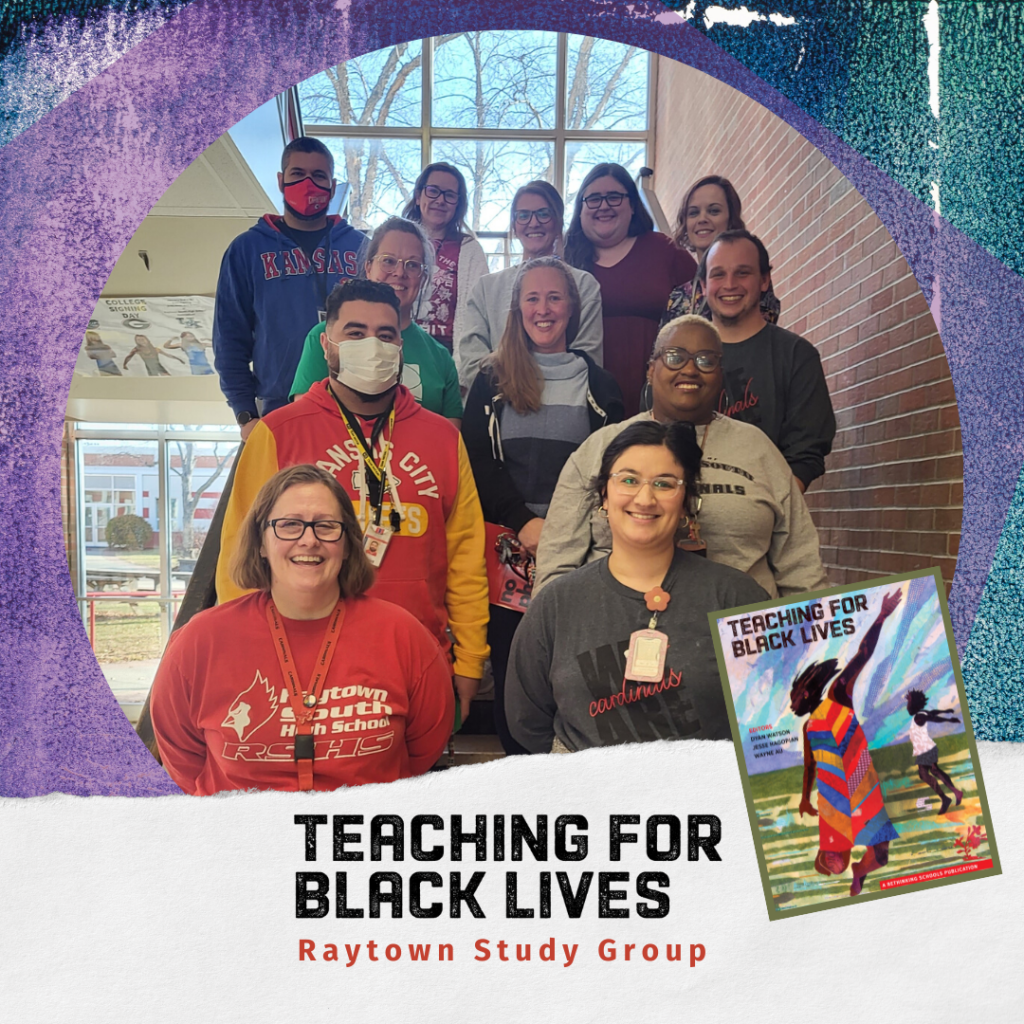
Raytown South High T4BL Study Group
The Raytown Teaching for Black Lives study group is made up of 16 teachers from Raytown South High School (9–12) in Missouri. They meet monthly in-person to center discussions of how anti-racism should inform grading practices, uniform policies, and approaches to restorative justice and education.
They recently read Section 4 (“Discipline, The Schools-to-Prison Pipeline, and Mass Incarceration”) and discussed the articles “How K-12 Schools Push Out Black Girls,” “Haniyah’s Story,” and “Teaching Haniyah.” Group members analyzed their experiences engaging with Black girls at school and how their own socialization impacts those relationships.
One teacher shared, “I’ve always been super sensitive to tone, like literally not what a kid says to me but how they say it. It’s partially part of how I was raised to be a nice sweet girl.”
Irene Cluts, History teacher, read this excerpt from “How K-12 Schools Push Out Black Girls”:
Cluts said, “I think teachers can get heated in the moment. . . but it’s important that we always try to remember that there’s some type of trauma or some type of situation many of our students may be dealing with.”
Sarah Apple, a Science teacher, recalled the student walkout that happened in 2021. Students expressed their anger and some people focused on their tone rather than understanding why students felt the way they did. She explained her approach to avoid reacting to tone or her perception of a tone:
I proceed by asking questions and being curious. You sound really angry. Can you tell me where that is coming from? What’s going on?
In the heat of the moment it’s so difficult to get people to actually use those strategies and not take things personally. I just saw a conflict after school that escalated instead of de-escalated. It’s hard when we see other people responding in a way that is probably not the best way. We want to remain professional and we want to stay in our lane but there are times that you have to step in. We have to have those uncomfortable conversations.
MaKenzie Mulvihill, a History teacher, expressed the importance of validating students’ experiences.
When a student opens up to me because they feel safe in my classroom and reports that they experienced racism or some sort of injustice from their peers, I’ve had to put aside my positive experiences of that person. I need to make sure that I’m validating that student despite my own personal experiences.
The study group also had rich conversations about Jody Sokolower’s “Teaching Haniyah.” Aidan Link, a Science teacher, was struck by the comment Haniyah received from the probation officer: “Yeah right, everybody comes back. We’ll see you again.” It made him think about the careless comments that educators and adults make to students without registering the harmful impact.
When Sokolower’s students disclosed their personal stories in small groups, MaKenzie wasn’t surprised with their willingness to share.
I notice when we work with young people that there is typically empathy among them, they are pretty receptive and open to hear each other’s experiences. I think it is important when we’re educating and working with young people to recognize that their realities are different.

